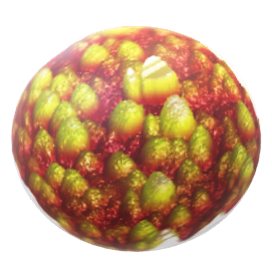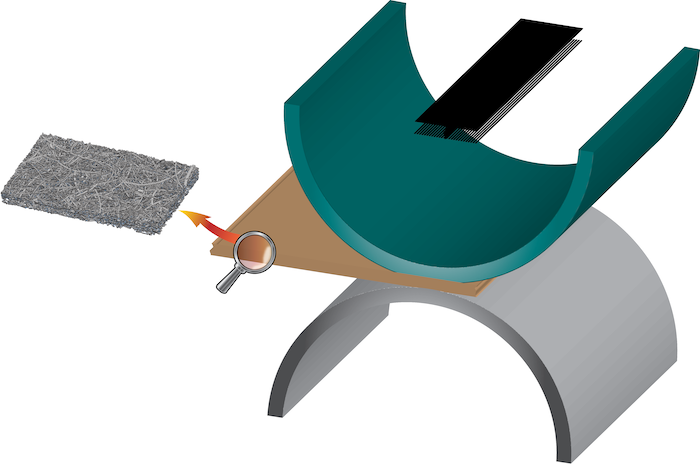Conducting cellulose fibres and yarns for circular electronic textiles
Conducting fibres and yarns are essential components of the next generation of wearable electronics that seamlessly integrate electronic function into one of the most versatile and most widely used form of materials: textiles. Necessary requirements are a high degree of wash and wear resistance. Traditionally, colouring of cotton, viscose and lyocell fibres is done with […]
Recyclable and Creep Resistant Polyethylene – through Transient Cellulose Networks
Plastics enhance almost every aspect of human life from food consumption to medical care and even energy production. However, the often superficial use of plastics means that a large fraction of this versatile class of materials is not recycled but, instead, burned for energy recovery, buried as waste in landfills, or worst case simply discarded […]
Lignin nanoparticles

The project is aimed for development and functionalization of nanoparticles (NPs) based on technical lignins. Due to natural origin of lignin and good biocompatibility, lignin NPs (LigNPs) can find application as targeted drug delivery vehicles for future implementation in biomedicine. Within the scope of this project, we aim to develop novel multifunctional lignin nanoparticles from […]
Development of advanced methods for investigation and counteracting of membrane fouling during recovery of extracted wood components in biorefinery applications
This project aims to develop and use advanced characterisation methods to investigate how process parameters can be utilised to decrease the effect of surface fouling during separation for recovery of high molecule weight hemicelluloses in biorefinery applications. Characteristics of formed fouling layers that are difficult to measure: thickness as well as cohesive and adhesive strength, […]
DRIVE
DRIVE PROJEKTET – Ny kunskap för att stimulera regional tillväxt genom åtta aktiviteter för innovativa gröna transporter med engagemang från ett 30-tal företag och ett antal offentliga aktörer. SKÖRDA – Nya typer av vindytor och termoelektriska system för förnyelsebar energi från vind och markkommer att utvecklas med hjälp från industriella aktörer.LAGRA – Superkondensatorer, en typ […]
Multiscale simulations of fibrils in suspensions and in flow
This project is part of INTERFACE – a multidisciplinary center for flow and molecular dynamics (https:–www.interface.proj.kth.se). The aim is to develop models, based on atomistic MD, for multiscale simulations of cellulose nano fibrils.
Scale-up of sustainable production of dialdehyde cellulose and dialcohol cellulose
The project is a collaboration between Chalmers, KTH, BillerudKorsnäs and TetraPak. The aim of the project is to develop a closed or semi-closed techno-economical feasible process for production of Dialdehyde cellulose, DAC and its derivatives with a target to replace plastic materials in different applications such as thermoforming, extrusion and moulding. The project will have […]
Biocomposites from fibres and nanocellulose
The project is a post-doc project within WWSC 2.0 The engineering aim brought forward in the project is to produce composities by using chemically modified fibres and nanocellulose and use these as reinforcing-structural elements in a polymer matrix. The resulting composites material must be manufactured with conventional, possible slightly modified, polymer processing techniques in order […]
Hybrid composites based on nanocellulose and 2D-materials
Nanocellulose in the form of fibrils (CNF) from wood is a new building-block for complex nanocomposites. Both the new materials and CNF itself are of major scientific and technical interest, with strong industrial potential. The use of colloidal systems makes it possible to mix CNF with for instance montmorillonite clay (MTM) or graphene oxide (GO) […]
Injection moulded polymers – imaging of composites with x-ray techniques
Investigation of the structure induced by processing of traditional polymers for packaging application (such as LDPE or HDPE) as well as new cellulose and ligno-cellulose based materials. Characterization include SAXS/WAXS imaging, birefringence, STXM, and CT.
The effect of compaction parameters on the properties of high-deformable paper

This project addresses the challenges of producing high-deformable paper for 3D forming applications using the in-plane compaction process. Enabling 3D forming of advanced paper structures paves the way for complete elimination of plastic based packaging or partial replacement of plastic in multi-material packages, which aligns with current international strategies for a sustainable development of the […]
Composite of lignin derivatives and conducting polymers for electro-capturing of toxic heavy metals
Among the 100% water on planet earth, less than 1% is liquid fresh water and about 0.0025% is available fresh water for drinking, food and industries. More than 90% of the fresh water is utilized for agriculture and industries. Pollution of water is thus an increasingly important problem. One of the most challenging depollution process […]

